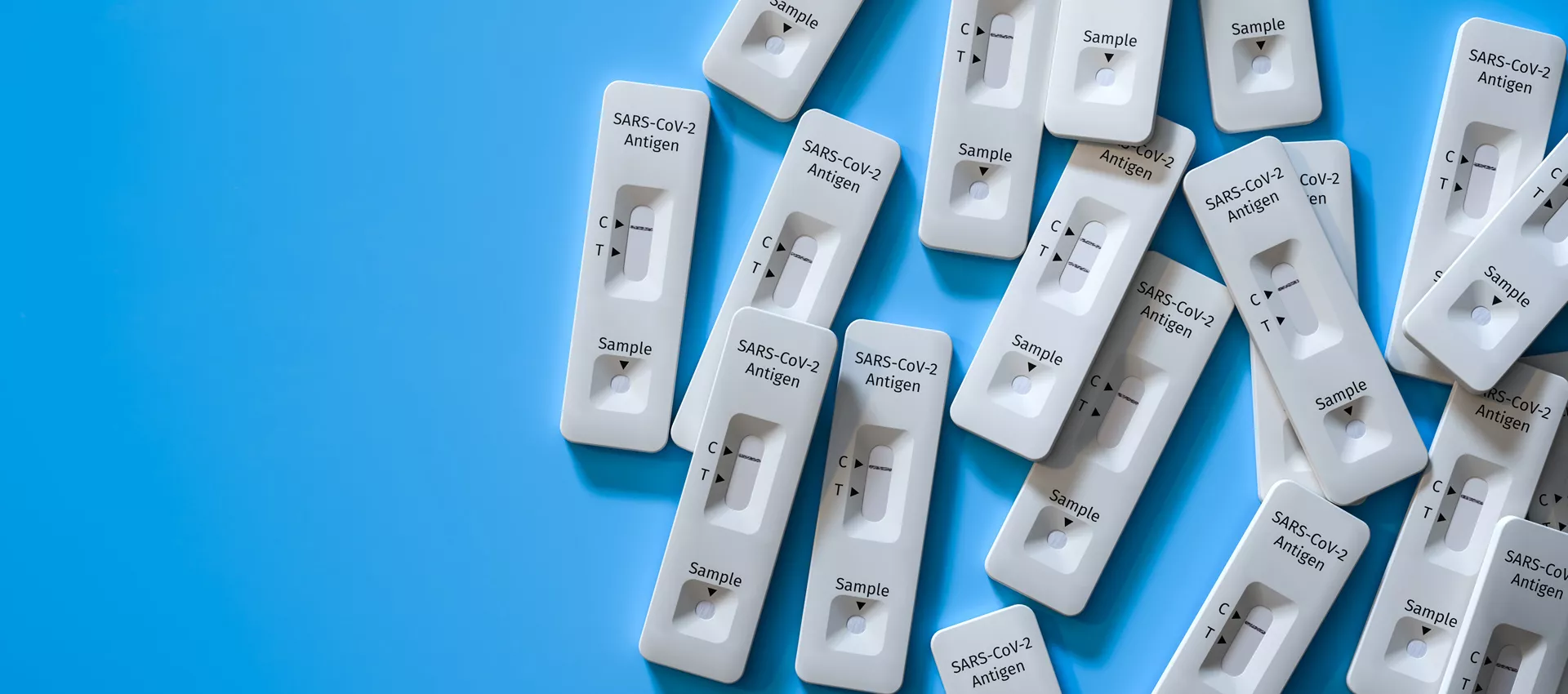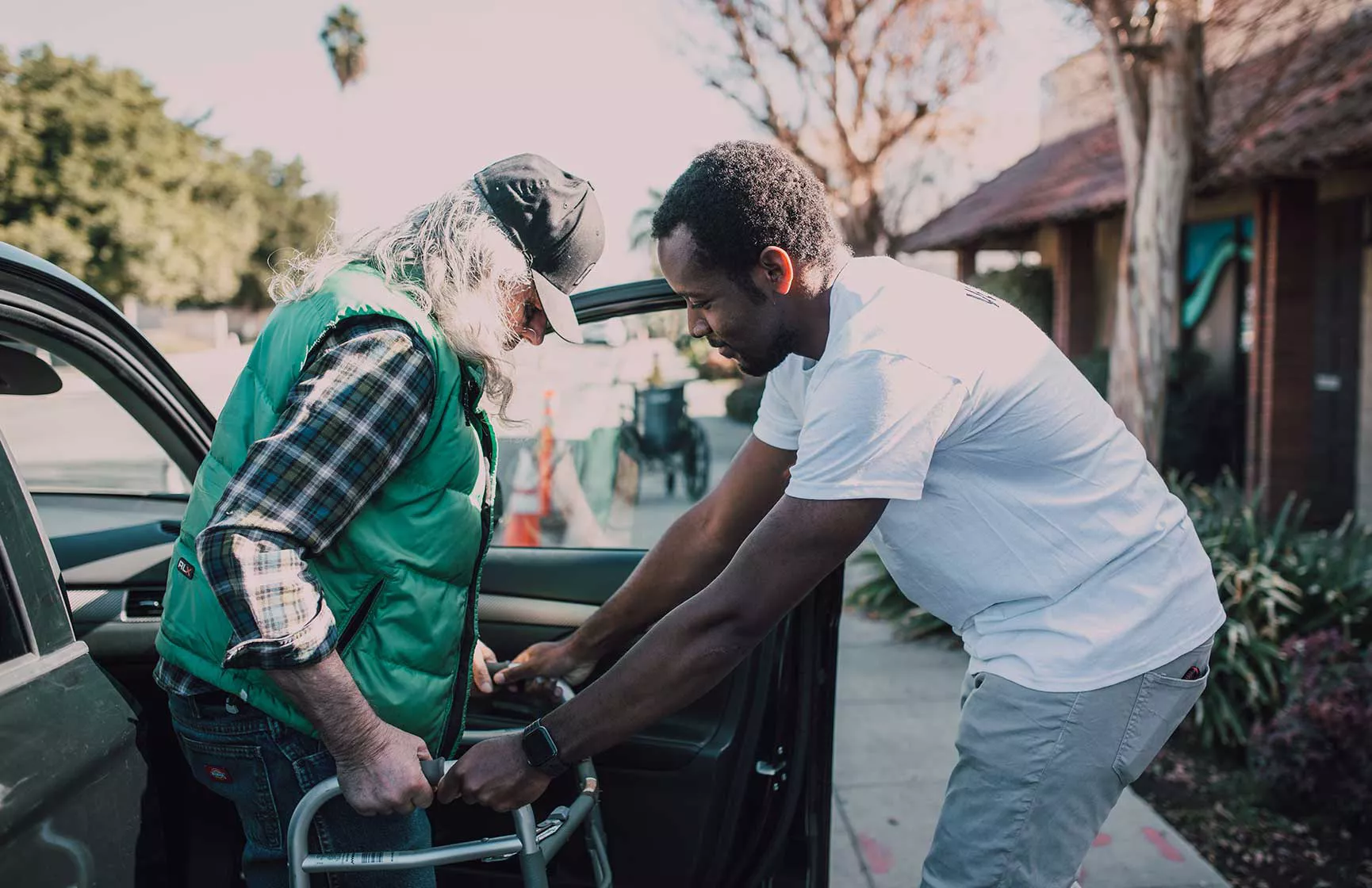CDL RSC
Supporting rapid antigen screening across Canada

At a glance
We’re proud to have partnered with Microsoft and CDL Rapid Screening Consortium on a mission to solve one of Canada’s biggest challenges in history: keeping its people safe while reopening the economy.
Impact
Together, we’ve developed a rapid antigen screening program, built on Microsoft Power Apps and Azure, which is available to all organizations in Canada.
Key Services
Industry
Federal & national government
Key Technologies / Platforms
- Microsoft Power Apps
- Azure
A historical mission
As we write this story, there have been 1,523,668 reported cases of COVID in Canada and 27,073 COVID-related deaths. There are an average of 2,787 new reported cases per day.
The CDL Rapid Screening Consortium (CDL RSC) is a private-led, not-for-profit initiative formed in August 2020 with the mission of developing and implementing a rapid COVID screening system available to all organizations in Canada. Led by Creative Destruction Lab (CDL), it’s an unprecedented collaboration of businesses, researchers, and the government, all working together on a single, public-interest goal.
Slalom joined the collaboration after Microsoft, our partner of nearly two decades, reached out asking if we’d be interested in helping CDL RSC implement its rapid screening solution built with Microsoft Azure and the Microsoft Power Platform. We gave a resounding yes, and in less than seven business days, our Slalom team was up and running.
Results within minutes
Canadian organizations of all sizes, across all industries—from retirement homes to restaurants to yoga studios—are participating in the rapid screening program.
Here’s how it works: A worker goes to a testing location (often the lobby of their company’s building), takes the rapid antigen test, and waits 15 minutes or less for the results. If the results are negative, they can go into the office. The healthcare professional records the results in the enterprise app (which is also used for scheduling). If someone receives a positive result, they’re directed to get a confirmatory PCR test and are encouraged to share those results as well.
Another option is for workers to take an at-home test and upload the results themselves through the employee app, where provincial guidelines permit.
Workers are advised to take at least two tests per week. All screens are government-approved, and sites are conducted according to health guidelines.
Employers can view the results in a Power BI dashboard, which helps them continue adapting and planning for the future to protect their people and their businesses. Once a week, results—which are de-identified and encrypted in the process—are automatically transferred to the CDL RSC’s centralized data hub, which helps drive insights to protect all Canadians.
Seamless and secure
A process that feels quick and easy to workers, organizations, and healthcare professionals required fast-moving technical expertise behind the scenes.
“Our focus is making sure tools can be implemented as quickly and seamlessly as possible,” says Devon Elke, a director at CDL RSC. “Slalom has been a big part of helping to ensure that we have a really efficient and mature process for implementing our data product suite.”
Our Slalom team provided support across three key areas:
- Helping organizations connect their data to CDL RSC’s data hub. We created a scalable connection package, distributed using a GitHub code repository, for organizations to quickly connect to the centralized data hub. We also provided troubleshooting support and implemented the system end to end for organizations that wanted extra help.
- Building enterprise member and public file upload portals. Recognizing that all organizations have unique regulatory compliance, policy, and operational challenges, transporting the screening results to CDL RSC’s data hub requires flexibility. We created a flexible, secure upload portal that participating organizations can use within a week. We also created a portal for small and medium businesses to easily upload their results and meet reporting requirements without having to build a complex architecture.
- Working directly with Microsoft to build enhancements for the enterprise Rapid Screening Solution app. We’re building out new features using Power Apps to keep up with the changing COVID landscape.
With every solution we built, security was a top priority. “We completed InfoSec reviews with the largest banks in Canada to ensure the tools and solutions met their security requirements,” says Ainslie Hancock, Director of Client Services in the not-for-profit sector for Slalom Canada.
“One of the challenges of this work is that we’re responsive to what’s going on in the pandemic landscape, and, as everybody knows, it changes day by day,” says Elke. “Slalom came forward with a robust, well-rounded team of subject matter experts who were able to start working with us right away and get up to speed incredibly quickly. They were the partner who consistently worked alongside us as we pivoted time and time again.”

Shaping public policy with data
CDL RSC now has a national dataset on the effectiveness of rapid antigen screens and is using that data to provide insights on screen administration guidance. For example, based on collaboration with public health entities, CDL RSC has shared data on the effectiveness of at-home screening. CDL RSC advisors are also completing analysis on the outcomes of large-scale implementations of rapid antigen testing systems, and on managing workplaces during Canada’s third wave.
CDL RSC is scaling the program to as many organizations as possible across Canada, including schools.
“A number of universities and postsecondary institutions have joined the consortium and launched their screening programs in preparation for return to campus,” says Elke. “We also recently launched a cohort of public and independent K–12 schools and licensed childcare providers. We have upwards of 800 participants in that particular cohort.”
Legacy of the program
This has been a historical collaboration with high stakes—and one of the most impactful projects of Elke and Hancock’s careers.
“The fact that we’re having an impact on our local community and innovating on some of the coolest, newest Microsoft technology that’s out there makes me really proud to be a part of this,” says Hancock.
“We feel the impact of this work every day,” says Elke. “We hear from companies that need to travel across provinces and visit different client sites, and the fact that they’re running a screening program gives comfort to their clients. We also hear from employees saying it gives them greater security knowing that if there’s an individual who is asymptomatic, there’s a higher likelihood of discovering it before there’s a potential outbreak.”
The CDL RSC shows what’s possible when organizations come together for the greater good. By participating in this program, they’re protecting each other—and the economy—so that everyone can be together again, safely.




